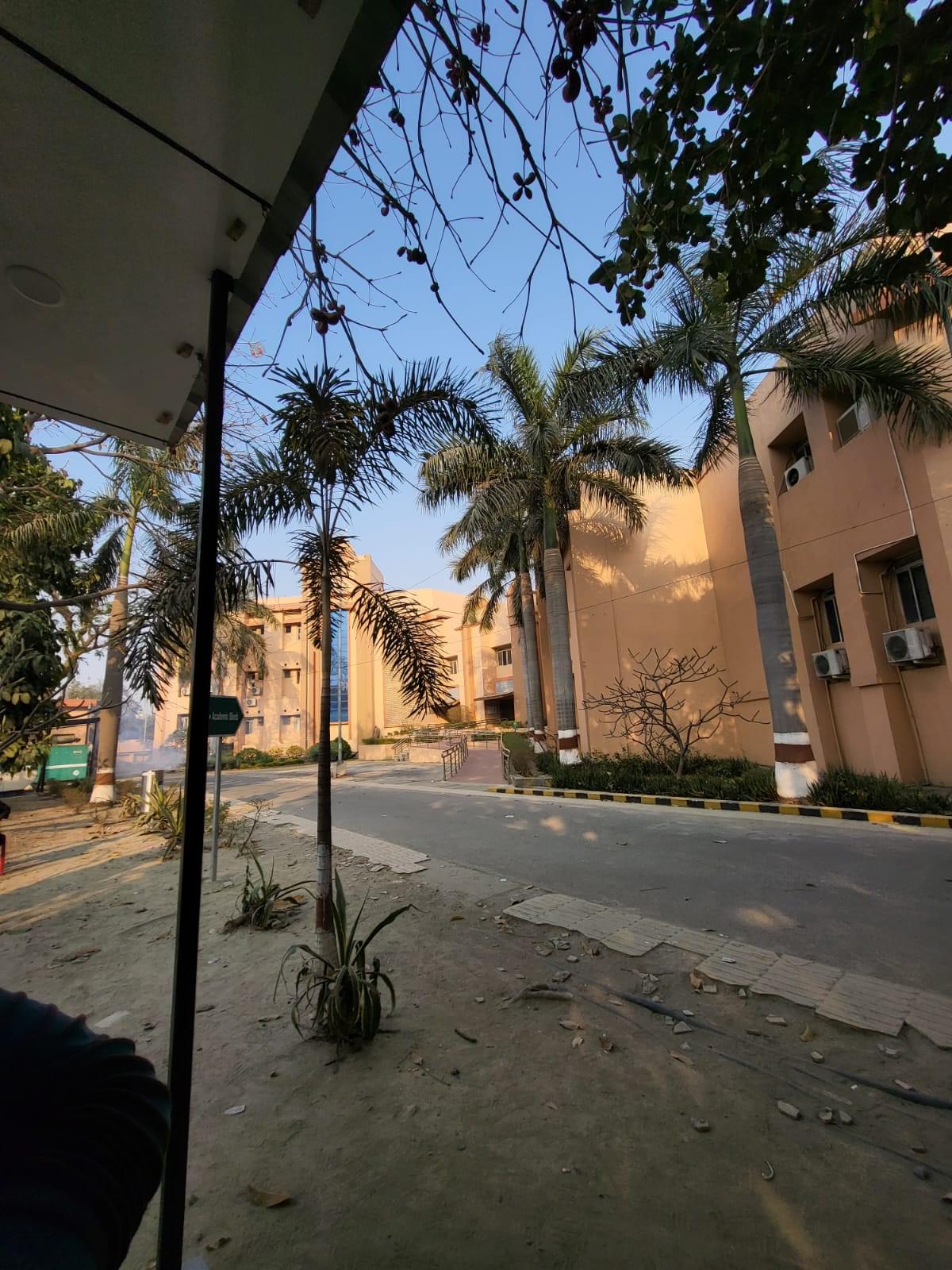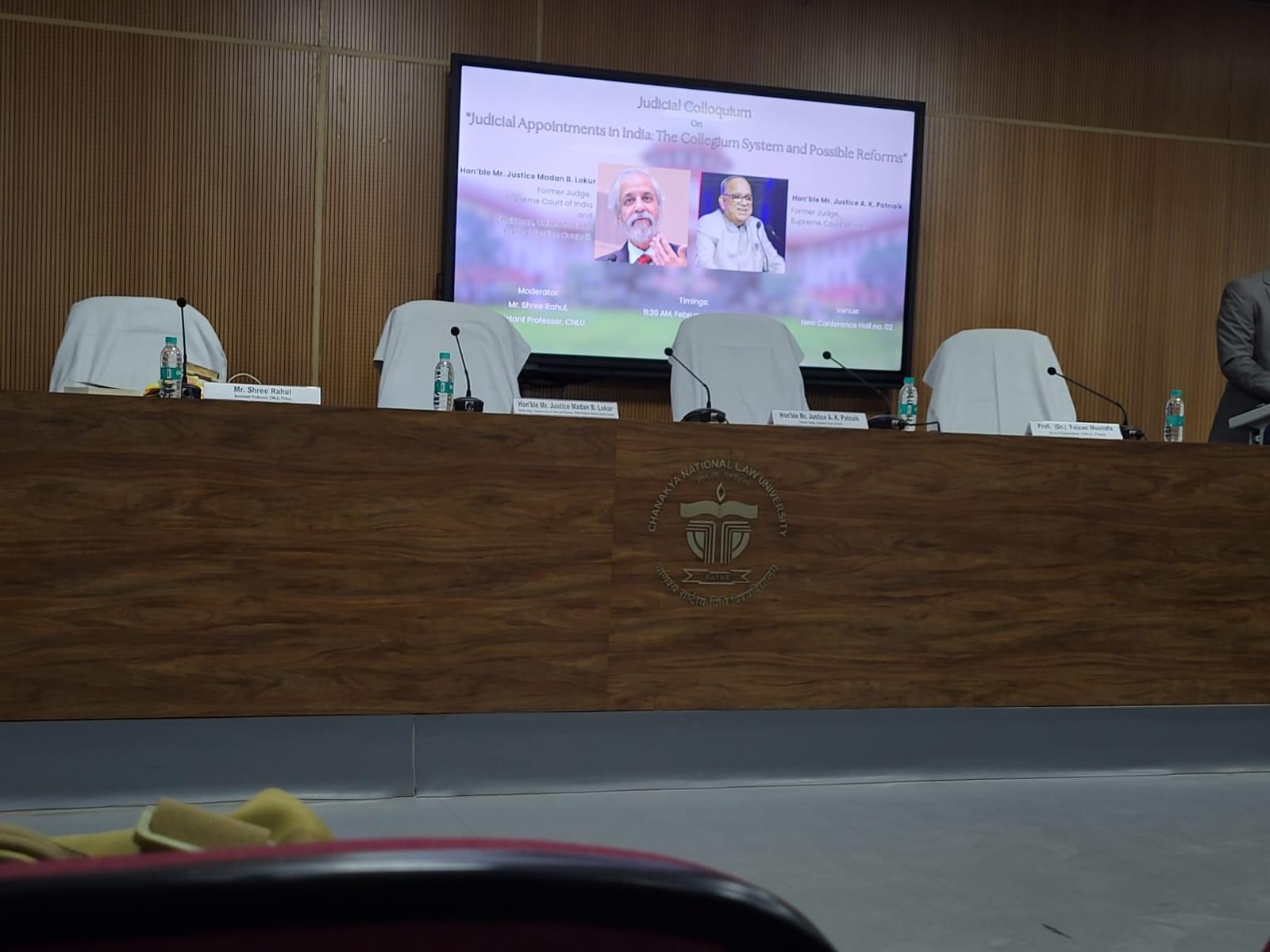- The total fees for BALLB {Hons.} is ₹ 9.19 Lakhs.
- This includes a total tuition fee of ₹ 6.34 Lakhs, Other Fees of ₹ 2.61 Lakhs.
- Candidates need to pay ₹ 2 Lakhs in the first year.
- CNLU Patna Hostel Fee is ₹ 75,000.
For students applying under the NRI quota for admission, the total course fee for BALLB {Hons.} at CNLU Patna is ₹ 22.84 Lakhs.
Earlier, BALLB {Hons.} fees at CNLU Patna was ₹ 8.86 Lakhs (in 2025) for the entire course duration. This shows a fee increase of ₹ 33,195 over the year.
Compare CNLU Patna BALLB {Hons.} Fees with Similar Colleges
Students have an option to pursue BALLB {Hons.} from similar colleges such as NUJS, NALSAR, CNLU Patna, NLSIU. Similar to CNLU Patna, BALLB {Hons.} at these group colleges is offered Full Time for a duration of 5 Years.
Comparing the course fees at these colleges, the total course fee at NUJS is the highest with ₹ 13.34 Lakhs. This is followed by NALSAR with ₹ 12.9 Lakhs and CNLU Patna with ₹ 9.19 Lakhs. Among these, NLSIU has the lowest fee for BALLB {Hons.} with ₹ 5 Lakhs.
| College | BALLB {Hons.} Total Fees |
|---|---|
| NUJS | ₹ 13.34 Lakhs |
| NALSAR | ₹ 12.9 Lakhs |
| CNLU Patna | ₹ 9.19 Lakhs |
| NLSIU | ₹ 5 Lakhs |

![Chanakya National Law University - [CNLU]](https://image-static.collegedunia.com/public/college_data/images/logos/1421299198Capture.png?h=71.7&w=71.7&mode=stretch)








.jpeg)
.jpeg)

.jpeg)
.jpeg)
.jpeg)


.jpeg?h=100&w=100&mode=stretch)
.jpeg?h=100&w=100&mode=stretch)
.jpeg?h=100&w=100&mode=stretch)
.jpeg?h=100&w=100&mode=stretch)
.jpeg?h=100&w=100&mode=stretch)

![Chanakya National Law University [CNLU] Patna Result 2024: Check UG, PG, Revaluation Result @cnlu.ac.in](https://image-static.collegedunia.com/public/asset/img/exam/news/news12.jpg?h=78&w=78&mode=stretch)





![Bihar Institute of law - [BIL]](https://image-static.collegedunia.com/public/college_data/images/appImage/8644_BIL_NEW.jpg?h=111.44&w=263&mode=stretch)













.jpeg?h=90.56&w=161&mode=stretch)
.jpeg?h=90.56&w=161&mode=stretch)
.jpeg?h=90.56&w=161&mode=stretch)
.jpeg?h=90.56&w=161&mode=stretch)

![Chanakya National Law University [CNLU] Patna Result 2024: Check UG, PG, Revaluation Result @cnlu.ac.in](https://image-static.collegedunia.com/public/asset/img/exam/news/news12.jpg?h=72&w=72&mode=stretch)




![National Law University - [NLU]](https://image-static.collegedunia.com/public/college_data/images/logos/1743839641logo.png?h=72&w=72&mode=stretch)


![Maharashtra National Law University - [MNLUA]](https://image-static.collegedunia.com/public/college_data/images/logos/1651049311logo.jpg?h=72&w=72&mode=stretch)
![Central University of South Bihar - [CUSB]](https://image-static.collegedunia.com/public/college_data/images/logos/1493289864Logo.jpg?h=72&w=72&mode=stretch)
![Himachal Pradesh National Law University - [HPNLU]](https://image-static.collegedunia.com/public/college_data/images/logos/1703939318Screenshotfrom20231230175825.png?h=72&w=72&mode=stretch)
![Hidayatullah National Law University - [HNLU]](https://image-static.collegedunia.com/public/college_data/images/logos/1496135826lawe1.jpg?h=72&w=72&mode=stretch)

![Patna University - [PU]](https://image-static.collegedunia.com/public/college_data/images/logos/1493817542logoedtnew.png?h=72&w=72&mode=stretch)
![National Law University - [NLU]](https://image-static.collegedunia.com/public/college_data/images/logos/1512619900NationalLawUniversityJodhpur.jpg?h=72&w=72&mode=stretch)
![National Law University Odisha - [NLUO]](https://image-static.collegedunia.com/public/college_data/images/logos/1482404067logo.png?h=72&w=72&mode=stretch)
![Bihar Institute of law - [BIL]](https://image-static.collegedunia.com/public/college_data/images/logos/col8644.jpg?h=72&w=72&mode=stretch)
![Rajiv Gandhi National University of Law - [RGNUL]](https://image-static.collegedunia.com/public/college_data/images/logos/1435904627law.jpg?h=72&w=72&mode=stretch)

![National University of Study and Research in Law - [NUSRL]](https://image-static.collegedunia.com/public/college_data/images/logos/1420874007download (2).jpg?h=72&w=72&mode=stretch)
![The West Bengal National University of Juridical Sciences - [NUJS]](https://image-static.collegedunia.com/public/college_data/images/logos/14849807071438082192nujslogo.jpg?h=72&w=72&mode=stretch)

Comments